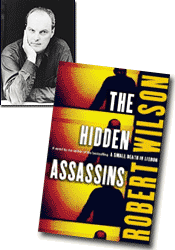An Interview with
Robert Wilson
Interviewer Luan Gaines: Was there any particular incident that inspired The Hidden Assassins?
Robert Wilson: I had intended to write in more detail about the Russian mafia, which has become a serious problem in the Iberian Peninsula. (Only the other day some friends who run an isolated hotel out in the Spanish countryside about 70 miles from Seville had a midnight visit from the Guardia Civil who were ‘looking for Russians’ and ‘did they have any staying at the hotel?’) Then on March 11th 2004 the Madrid train bombings occurred, killing 192 commuters and I knew that this was something that had to be looked at: Islamic terrorism had come to mainland Europe and contributed to a change in government. I was in a very interesting position in that I had a hero who had recently discovered that he was half Moroccan, living in a city (Seville) and region (Andalucia, still known as Al-Andalus in the Arab world) with a glorious Islamic past. It gave me the opportunity to examine this strange conflict between two regions and peoples who, although separated by the Straits of Gibraltar, are essentially the same, apart from their religion and some aspects of their culture. The final expulsion of the ruling Moors from Andalucia in 1492 after more than 700 years of occupation left a cultural debt and is part of why so many people love to go to Seville. It was these particular set of circumstances that led me to change my mind.
Given the current climate, was the prospect of writing a thriller about terrorism intimidating?
What most worried me about writing a thriller on the subject of terrorism was how to make a human story out of such a cold and heartless matter. I felt myself to be up against not only a certain amount of audience fatigue on the issues, but also that I was trying to beguile a readership who perhaps had more of a desire to escape from the horrific reality, which had already reached their doorsteps, rather than dwell on it in a form of entertainment.
Religious fanatics of whatever hue do not, surprisingly, make for villains with recognisable human qualities, part of the problem being that to kill and maim men, women and children indiscriminately demands that the terrorist suppress, or even extinguish, all innate humanity. I especially did not think it would be possible to write a story in which a robed and bearded/faceless fanatic could be described in a way that would enable the reader to form an emotional connection. And readers enjoy emotional connections to villains. Just think of Hannibal Lecter.
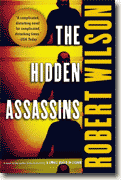 What I realised was that terrorists are often people who live amongst us, share in the advantages of our society, enjoy the freedoms of our democracy and then turn on us in the most bloody way possible. They pretend to be us and are indistinguishable from us except in what they have in their minds. I decided that my human story would come out through the public caught between the extremes. To help me in this I had the advantage of a number of well-developed characters from the two earlier novels in the Falcón quartet. Through them I could show the nature of terror, whether in the form of repressed horrors coming to the surface of a disturbed mind on the psychologist’s couch, or through a married couple’s relationship falling apart with tragic consequences as a result of domestic violence. I could even show the unrecognisable terrorist, who lives happily amongst us. All the human stories are relevant in microcosm to the greater horror, which is global terrorism.
What I realised was that terrorists are often people who live amongst us, share in the advantages of our society, enjoy the freedoms of our democracy and then turn on us in the most bloody way possible. They pretend to be us and are indistinguishable from us except in what they have in their minds. I decided that my human story would come out through the public caught between the extremes. To help me in this I had the advantage of a number of well-developed characters from the two earlier novels in the Falcón quartet. Through them I could show the nature of terror, whether in the form of repressed horrors coming to the surface of a disturbed mind on the psychologist’s couch, or through a married couple’s relationship falling apart with tragic consequences as a result of domestic violence. I could even show the unrecognisable terrorist, who lives happily amongst us. All the human stories are relevant in microcosm to the greater horror, which is global terrorism.
When the unidentified, mutilated body of a man is first discovered, Falcón goes into his usual police procedural mode, but the apartment bombing throws the investigation into a whole new direction, nearly leaving the murdered man, a critical element, on the sidelines. How does Falcón reign in this suddenly unruly investigation?
As Falcón drives back into the city having wrapped up the crime scene of the disfigured corpse he thinks: “The unidentifiable corpse was like a neurosis; a small, ugly protrusion digging into the consciousness of the city from a bigger horror underneath.” That sensation never leaves him despite his attention necessarily being diverted to the greater (and more politically important) catastrophe. Early on the Spanish intelligence agency (the CNI) have told all the investigators that they must keep an open mind, whilst they themselves proceed down the single track of Islamic terrorism. Despite political and media pressure Falcón maintains this balanced state and, as his investigation develops, he begins to see the possible involvement of two extremist networks. It’s when the dead ends start cropping up that he makes the creative, lateral leap back to the unidentifiable corpse. Given that there are fewer than 15 murders a year in Seville, he reasons that the discovery of a corpse 24 hours before a terrorist attack could mean that there’s a high chance of the two being connected in some way.
Falcón is a man used to very direct methods in his work, adapting as the situation requires. Does this possible act of terrorism impede Falcón’s control of his part of the investigation? How does he respond to the sudden interest of the alphabet soup of government agencies?
He is in no doubt that this is going to be the most difficult investigation of his career but he also never loses sight of its point, which is to find the perpetrators of the attack. Anyone who is going to contribute to that end is welcome in his investigation. He is wary of the CNI (Spanish Intelligence) because they say one thing and do another. They also have an unnerving interest in Falcón himself. He is mystified by the lack of presence from the CGI (anti-terrorist squad) and appalled that the reason for this is that they may have been
penetrated by a mole. This is the nature of high profile incidents; they attract pressure from all sides and throw up the unpredictable. Falcón survives, despite having his investigation undermined and his powers dissipated by the CNI, by maintaining his focus. He also, ironically, has the help of Judge Calderón, who is a genius with the media. The idea of this part of the book was to show the complexity of terrorist attack investigations and the tremendous pressure under which all involved have to perform. One of the reasons I invented the possibility of the CGI being compromised was that it was yet another government agency, with more names for the reader to have to assimilate. I was aware of the demands I was already making and felt that if I could delay the entry of at least one agency, and its characters, it would make life easier. This led me to an interesting structure where I found myself telling the story in digestible chunks. The reader would only have to remember a certain number of characters per chunk. It was my way round the problem of showing the complexity without drowning the reader.
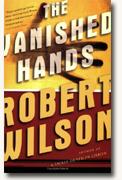 By setting the action of The Hidden Assassins in Spain, you show the many faces of a country as it deals with terror and the resulting chaos on every area of society. Can you contrast the Arab tendency to look back at history with the absolute need for certainty of the Americans? Is this a fatal flaw in the West’s response to terrorist acts?
By setting the action of The Hidden Assassins in Spain, you show the many faces of a country as it deals with terror and the resulting chaos on every area of society. Can you contrast the Arab tendency to look back at history with the absolute need for certainty of the Americans? Is this a fatal flaw in the West’s response to terrorist acts?
One of the reasons that the Arabs look back on their history with such reverence is that it was so glorious. It’s quite natural for a people who invented so many of the things we take for granted today (from coffee, cameras, chemical processes to surgical instruments, inoculation, irrigation, cheques and even carpets), and who had, in Cordoba University in southern Spain, one of the foremost places of learning in the world with the largest library and all in the 9th, 10th and 11th centuries, to reflect endlessly on their golden era. I was astonished in my research to meet Moroccans who referred back to the 8th century and 1917 as if they were yesterday. But then again the 8th century was when the Umayyads first arrived in Spain from Damascus and 1917 was the year of the Balfour Agreement, which was the first nail in the coffin of the Palestinian people, as far as many Arabs are concerned. One is a source of pride, the other a source of humiliation and both are ever present in the Arab mind.
Americans, because of their heritage (i.e. their reason for coming to the USA in the first place), are more interested in the future or their own unilateral history rather than a pot pourri of immigrants’ histories. This is the nature of the communication gap between the two cultures. One looking to the past for solutions to the present, the other turning their back on the past and looking to the future for a better way of life.
“One cultural difference between Islam and the West: whenever an Islamic attack occurred, the West always looked for the mastermind”, demanding “a hierarchy, a plan with an achievable goal.” Can you explain the significance of this cultural response, especially as it relates to Falcón’s investigation?
During the Cold War, the Soviet Union, and even the communists, had a hierarchy and a plan, with the ultimate goal of global domination. This was a battle of nations and ideology, which we could understand. This time round we are not up against a nation, we are not up against a people, we are not even up against a religious ideology. We might have thought in the beginning that Osama bin Laden was the leader of a group called al-Qaida. Now we realise that there are many groups and any number of leaders. Some might be operating under the auspices of al-Qaida, others seem to be independent and only inspired by them. We have no idea what their plan is or what their goals are, other than causing as much trouble for the West as possible. This is all explained quite clearly at the beginning of Falcón’s investigation by the CNI (Spanish intelligence). It’s a very demanding brief. It requires everybody to work in a cloud of unknowing and, worse than that, it means that the politicians and media have nothing to tell the people until hard evidence is uncovered. It is the terrifying nature of this brand of terrorism that it fits no pattern, has no template and is totally fluid and flexible.
The Islamic Fundamentalists seem particularly rational in their approach to terrorism, spreading fear through bombings and other unpredictable acts, also punishing countries through economic interference. How significant is the economic damage they propose and, in general, how will that work?
I don’t have all the figures at my fingertips but, even without going into the astronomical expenses incurred by invading Iraq, we are already aware of the immediate and heavy cost of homeland security and to the airlines, tourism and insurance. (The last terror alert about liquid explosives on transatlantic flights cost British Airways £100 million). This has been achieved with comparatively few terrorist acts and by very few terrorists. The impact on the West in terms of lives lost and expense incurred has been huge, whilst the cost to the terrorist organisations has been negligible. Terrorism works in the same way that fleas work on a man trying to sleep. They never pull off the killer blow but they weaken and tire over a long period until there is little resistance. There may come a time when some global economic analyst looks at the figures and thinks these ongoing budget deficits, this building of massive national debt, this loss of confidence in government bonds is all adding up to a meltdown, whereupon that could well be what happens.
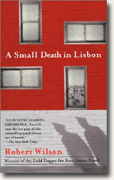 Why does the West seem incapable of recognizing this tactic and formulating an appropriate response, or are other forces and interests at work here?
Why does the West seem incapable of recognizing this tactic and formulating an appropriate response, or are other forces and interests at work here?
I think the West is making significant inroads, but it takes time. The intelligence services in the USA and Europe were totally unprepared for this brand of terrorism. It takes a great deal of work and time to position agents, especially as many of these terrorist groups are bound not just by religious ties, but family and tribal ones, too. The world is also a very complicated place now with a global trade in untraceable arms and explosives paid for with money, which knows no borders, and run by organised criminal gangs, who sometimes see a benefit to themselves in supporting terrorism. So it’s not just a question of penetrating terrorist groups, but also cutting off their weapons, ammunition, money and support systems. I doubt you can do that from a standing start in less than ten years.
Tangentially, Falcón has family ties to the ongoing investigation his ex-wife (married to Juez Esteban ) and his sister (living with Angel Zarrias). To what extent, if any, do these relationships impede Falcón’s ability to perform his job?
When he discovers what has happened to Inés Falcón, he is shocked and distraught, as anyone would be, but because of his connection to her he is not allowed to investigate the crime. The direst effect is that the investigation loses its most powerful media performer and leading judge, Esteban Calderón. Because of the way the Spanish judiciary organises its investigations, this means that the director has been removed. The most serious consequences are: the investigation’s exposure to full media scrutiny with no diversionary tactics, another judge has to bring himself up to speed, the whole integrity of the investigation is brought into question. This puts tremendous pressure on Falcón. He does not allow his relationships to Manuela and Angel in any way impede his ruthlessness in trying to achieve justice for the victims of the attack.
Consuelo returns in this novel, perhaps with thoughts of rekindling her abruptly ended romance with Falcon in The Vanished Hands. In her words, “Happiness is not my natural condition”. Why is Consuelo out of touch with herself to the point of emotional devastation?
We learnt from the very intrusive investigation into her husband’s murder in The Blind Man of Seville that Consuelo had had an earlier love life that had got out of control. As a result of the trauma and a feeling of helplessness of that time, she decided that she was going to change her life. Part of changing her life demanded that she do some ‘forgetting’ and it is the result of her ‘forgetting’ without forgiving that has come back to haunt her now. This is why, despite the apparent perfection of her life, ‘happiness is not her natural condition.’
What does Consuelo’s therapist mean when she says: “This terror has its rewards”?
Consuelo is experiencing terror not only at what her mind is capable of thinking, but also at the clear possibility of her own madness. What Alicia Aguado is telling her is that if she has the courage to face this terror and find its cause and source she will be rewarded with knowledge, understanding and therefore the potential for happiness.
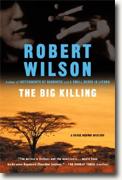 While Consuelo is painfully breaking free of her personal demons, Inés, Falcón’s ex, suffers the depersonalization of the battered wife, rationalizing ’s increasingly violent behavior (“She couldn’t even think of herself in the first person singular anymore”). Both women are educated, financially secure. What is the critical difference between them and the way each faces her personal crises?
While Consuelo is painfully breaking free of her personal demons, Inés, Falcón’s ex, suffers the depersonalization of the battered wife, rationalizing ’s increasingly violent behavior (“She couldn’t even think of herself in the first person singular anymore”). Both women are educated, financially secure. What is the critical difference between them and the way each faces her personal crises?
Consuelo has a powerful personality, is used to loneliness and is a woman of great courage. She has been able to face up to certain things including the death of her husband and the horror of his past and understand why they happened. She has also looked after her three children and built a successful career. She continues to show courage in this book in confronting her greatest fear. Conversely, Inés has had a charmed life and has never had to develop the equipment to confront adversity. When terror enters her own home her solutions to her predicament are to hide from herself, rewrite history and avoid the truth. She realises that she has no friends or family who are able to help her in her current situation. Ultimately she uses drugs to insulate herself from the reality.
After his horrific deed, Calderón is practically relieved to be caught by the authorities. Besides the obvious problems he faces, how much is the bombing investigation compromised by ’s impulsive actions? Is this crime of passion more significant for Falcón on a personal or professional level?
The investigation loses its media star, which these days is crucial. The result is that the homicide team, who need to just get on with their very difficult job, are suddenly exposed and susceptible to unhelpful criticism. But worse, because of the nature of Calderón’s crime, the integrity of the whole inquiry is put at risk, with the public thinking: ‘If this is what our judiciary is doing in its free time what can we expect from their work?’ Falcón is surprised at how much this crime affects him, not so much by Calderón’s denial, which is normal, but his own emotional response. He thought he was over Inés, but such is the nature of violent crime: nobody deserves it, not even someone you’ve grown to despise. And however much you believe you’ve cut emotional ties with an ex-wife, there’s always a strand that connects you.
Considering his position in the public eye, what is the social significance of Calderón’s arrest?
Falcón makes the point that domestic abuse is not confined to the lower income end of society and can be found in wealthy, celebrity households, too.
Each terrorist event creates opportunities that are not limited to those directly involved. Can you speak to this phenomenon, how particular interests seize on tragedy to further their own agendas and how this complicates the intelligence gathering of government agencies?
This was very much the case in the March 11th 2004 Madrid bombings. The Spanish Prime Minister, José Maria Aznar, was obsessed with ETA (the Basque terrorist group). In the past Aznar’s armoured car had been blown up by one of their bombs. His animosity towards ETA was both personal and historic. He absolutely believed that the Madrid train bombings were an ETA attack because they had recently attempted some train bombings and a large quantity of explosive had been apprehended on its way to Madrid in a van driven by ETA members. Under these sorts of circumstances it is extremely difficult for an intelligence agency to operate, when a leader will only believe what he wants to believe. The same happened with Stalin when Hitler invaded Russia during WW2. Stalin refused to believe the intelligence that significant German forces were piling up on the Polish border. In The Hidden Assassins, the CNI want to keep an open mind, but also don’t want to make the same mistakes that they made in Madrid. However, they exclusively pursue the Islamic terrorist theory and in this they have the support of the public, who have been persuaded by the media that this is the case. There is some devilish planning from the Catholic conspirators, who very successfully manipulate the media with anonymous tip offs and various plants. In the end there is nothing that powerful people, or people who are seeking power, love more than a public susceptible, through fear, to manipulation.
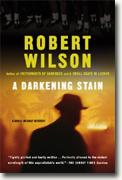 What part do diversionary tactics play in an attack; for example, a bombing to preoccupy the authorities while another, more complicated plan may be evolving elsewhere? Has this become common practice?
What part do diversionary tactics play in an attack; for example, a bombing to preoccupy the authorities while another, more complicated plan may be evolving elsewhere? Has this become common practice?
Some experts believe that there was complicity between ETA and the Islamic terrorists in the Madrid bombings. This is extremely difficult to prove. Some might think it significant that on the day that the actual Madrid bombers drove to northern Spain to pick up their explosives, a truck driven by two complete idiots (employed by ETA) was apprehended outside Madrid, with half a ton of explosive destined for the capital. However, if you wanted to pull off a surprise train bombing, would you make several failed attempts to bomb trains in the months beforehand? As the intelligence game becomes more sophisticated it would not surprise me to discover that diversionary tactics were becoming commonplace.
Unpredictability is the great unknown, particularly the failure of terrorists to use familiar or repetitive patterns. How is it possible to contain or address such threats when the game plan is constantly evolving?
You have to have agents within the communities gathering intelligence. We don’t know, but that is how we assume the authorities discovered the recent plot to explode liquids on board transatlantic flights. Large scale plans for terrorist operations are much more difficult to contain and leaks are easier to pick up. If you think about it, in The Hidden Assassins, both the anti-terrorist squad and US intelligence seem to be on top of what was going on in the mosque. It only got out of control when an outside force stepped in. My take on the latest evolution of terrorism was that the terrorists would plan an attack outside the target country and then use unknowing ‘mules’ to carry out the operation. I would think that this kind of operation would add another degree of difficulty for the intelligence services.
As the investigation winds down with little satisfaction for Falcón, he mentions the cross purposes of people with differing agendas: “It happened in the Crusades, why shouldn’t it happen now? Some people were out there battling for Christendom, others just wanted to kill, pillage and conquer new territory.” How does this concept apply to terrorism today?
The point Falcón is making here is that there may be groups out there who see an opportunity in terrorism. They might not be doing it strictly for religious belief but for personal gain and power. Once someone with influence sees that people can be manipulated through fear of Islamic terrorists, they set their mind to work on how they can pull off something that looks like an Islamic terrorist attack, which will destabilize the political landscape. This will give them opportunities to gain political power. With political power their personal goals can be achieved. In The Hidden Assassins, these are people who have learnt a great deal from the modus operandi of Islamic terrorists - one of the most important things being, to keep yourself well clear of the action which is carried out by expendable people.
Does Falcón’s frustration with the direction of the investigation reflect the rapid changes brought about by the constant threat of terrorism? How does he keep focused on the possible while releasing that which he cannot control? Is this the future of police work?
His frustration stems from the pressure to see each development in the way in which outside agencies want him to see them, and that includes the general public, who have been persuaded by the media. He is also frustrated by the lack of hard evidence. Until they get through all the rubble to the mosque, which was where the bomb exploded, they have to operate on circumstantial evidence. In the end he keeps much of this to himself as he realises it will be disagreeable to his superiors. He maintains focus by only extracting from each development that which is going to help him find who planted the bomb. The distracting stuff he leaves to whoever wants to believe in it. It takes a very clear-sighted individual to maintain this difference throughout, but that is why Falcón’s particular talents, learnt from years of suffering, serve him well under these circumstances.
Falcón is used to resolution, increasingly contradicted by the assorted agencies as his case keeps mutating. How has the concept of terrorism changed the face of law enforcement in countries that are intimate with Islam, if only by proximity? Does this familiarity with the cultural realities impact the way terrorism is handled?
In the UK the multicultural society is reflected, to a certain extent, in the police force and (we assume) in the intelligence agencies as well. In order to counter terrorism there has to be trust between police and local communities to maintain the flow of sensitive information. Intelligence agencies are also recruiting in those communities (notices are posted in local gyms). The government is anxious to draw Muslim leaders and clerics into dialogue, listening to complaints of racism and alienation and advocating more connection to mainstream society.
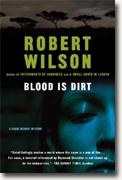 As you explore the many faces of terrorism and the competing agendas of other individuals in The Hidden Assassins, it becomes clear that the world has become far more complicated and dangerous to navigate. Given the nature of your novels, how does this fact impact you as a fiction writer?
As you explore the many faces of terrorism and the competing agendas of other individuals in The Hidden Assassins, it becomes clear that the world has become far more complicated and dangerous to navigate. Given the nature of your novels, how does this fact impact you as a fiction writer?
One of the jobs of a fiction writer is to make the world a more understandable place for readers. Politicians try to do the same but they tend to choose the simplification route in order to sell their ideas. The novelist’s work is to make sense of the complexities. When it comes to the present day terrorist organisations and their adversaries in the form of police, anti-terrorist squads and intelligence services, this is not an easy task. In The Hidden Assassins, I didn’t shy away from the complexities of the case and I drove the reader into a difficult place, where everything just seemed to be a tangled mess. But then I had a hero who, out of this tangle, found a strand to tug, and as he pulled on it, the story unraveled and to a certain extent order was restored. Not completely, of course; that would be impossible in this sort of world.
Do you find it easier to write in the historical past or in a modern day setting, the unpredictable era in which we now live?
Both require a lot of research. The historical demands an immersion into the past. The present requires the same but with an eye on the future because your novel will always be first read about a year after you’ve finished it. The historical is possibly easier because there’s a limit to what can possibly happen, given telecommunications, transport and technology. Others might think the present is easier because there are no limitations. Almost anything you think of can be possible.
There are some relevant references to Falcón’s recent past as the story unfolds. Were you already laying the groundwork for The Hidden Assassins when you wrote your last novel, The Vanished Hands? In this context, are you preparing Falcón’s next foray?
I wasn’t particularly laying the groundwork for the plot of The Hidden Assassins whilst writing The Vanished Hands, but I was preparing the characters for further developments. So, for instance, it’s possible to see how Inés and Calderón in The Vanished Hands can arrive at their present state in The Hidden Assassins. There is a partial resolution in the plot of The Hidden Assassins, but there are some questions left unanswered. Falcón has made a promise to the people of Seville and, being a man of his word, he intends to keep it. I was very conscious of laying the groundwork plotwise and characterwise for the fourth Falcón novel while writing this book.
What would you like your readers to take away from The Hidden Assassins?
Above all, while attempting to explain some of the complexities of the situation, I wanted to show how, after an attack on our way of life, it is the people themselves (rather than the media spreading alarm or politicians grabbing power) who heal society through their humanity. Whether they are policemen or bomb squad, fellow victims or the unscathed, it is their understanding, compassion and tolerance that can bind shattered communities and bring hope for the future.
 Click here for
Luan Gaines' first interview with The Hidden Assassins author Robert Wilson
Click here for
Luan Gaines' first interview with The Hidden Assassins author Robert Wilson
Robert Wilson is the author of seven novels, including A Small Death in Lisbon, which won the Gold Dagger Award as Best Crime Novel of the Year from Britain's Crime Writers Association. He has lived in Greece and West Africa and currently lives in Portugal and Oxford, England.
Contributing reviewer Luan Gaines interviewed Robert Wilson, author of The Hidden Assassins (see accompanying review), about his book via email for curledup.com. This text is the property of Luan Gaines and the author for whom it is intended. No part may be reproduced without permission. Luan Gaines/2006.

 What I realised was that terrorists are often people who live amongst us, share in the advantages of our society, enjoy the freedoms of our democracy and then turn on us in the most bloody way possible. They pretend to be us and are indistinguishable from us except in what they have in their minds. I decided that my human story would come out through the public caught between the extremes. To help me in this I had the advantage of a number of well-developed characters from the two earlier novels in the Falcón quartet. Through them I could show the nature of terror, whether in the form of repressed horrors coming to the surface of a disturbed mind on the psychologist’s couch, or through a married couple’s relationship falling apart with tragic consequences as a result of domestic violence. I could even show the unrecognisable terrorist, who lives happily amongst us. All the human stories are relevant in microcosm to the greater horror, which is global terrorism.
What I realised was that terrorists are often people who live amongst us, share in the advantages of our society, enjoy the freedoms of our democracy and then turn on us in the most bloody way possible. They pretend to be us and are indistinguishable from us except in what they have in their minds. I decided that my human story would come out through the public caught between the extremes. To help me in this I had the advantage of a number of well-developed characters from the two earlier novels in the Falcón quartet. Through them I could show the nature of terror, whether in the form of repressed horrors coming to the surface of a disturbed mind on the psychologist’s couch, or through a married couple’s relationship falling apart with tragic consequences as a result of domestic violence. I could even show the unrecognisable terrorist, who lives happily amongst us. All the human stories are relevant in microcosm to the greater horror, which is global terrorism.
